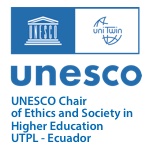Finitude and the sacred: rational experience of the person
Abstract
Why should religion be entirely a matter of philosophy? We will argue, on Derrida, that this is so by virtue of another mode of appearance of truth than that of the physical-natural sciences. Thus the symbol, in so far, as it refers to the problem of the system of philosophy, carries with it the whole of the human sphere. However, this is only possible if such a system is not indebted to those doctrines where the existent derives from a logical possibility originating in God. The question remains, however, how can it be that, having made such a critical exercise, the idea of man as vestigium Dei subsists in the constitution of such valuable institutions as the Constitutions?
Downloads
References
Derrida, Jacques. (1994) «Los fines del hombre». En: Márgenes de la filosofía. España: pp. 145-175.
Derrida, Jacques. (1994) «La mitología blanca» . En: Márgenes de la filosofía. España: pp. 247-313.
Derrida, Jacques. (1992) «Fuerza de ley. El fundamento místico de la autoridad.» En: Doxa : Cuadernos de Filosofía del Derecho,núm. 11: pp. 129-191. Disponble en http://www.cervantesvirtual.com/nd/ark:/59851/bmc0c5k2
Kant, Inmanuel. (2011). Crítica del Juicio. Madrid: Tecnos.
Derrida, Jacques. (1995) «Ser justo con Freud. La historia de la locura en la época del psicoanálisis» En: Revista de la Asociación Española de Neuropsiquiatría vol. 15 (53): pp. 225-254.
Disponble en «Ser justo con Freud»: La historia de la locura en la época del psicoanálisis. | Derrida | Revista de la Asociación Española de Neuropsiquiatría. (revistaaen.es)
Copyright (c) 2021 © Analysis

This work is licensed under a Creative Commons Attribution-NonCommercial-NoDerivatives 4.0 International License.








